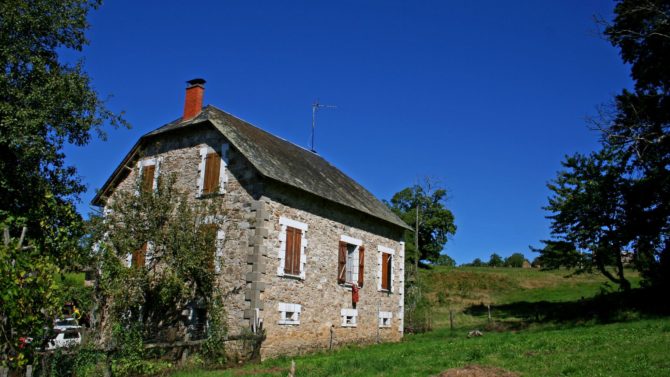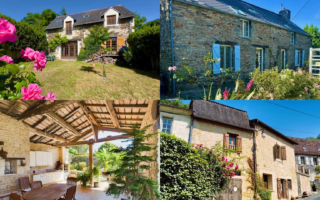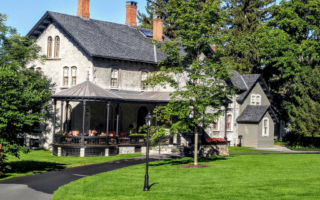French property: holiday home checklist

When you lock up and leave your second home in France there are some obvious items that you should complete to ensure that you return to fewer surprises on your next visit to France.
It is not like leaving your UK home for a weekend – your absence could be for three months or more and take you into the winter season when the effect of inclement weather needs to be considered as well as the isolated rural location of many second homes. Here are eight things to check to help keep your house as safe and secure as possible while you are away from it.
WATER
Turn off the water at the mains and also take a meter reading. If a leak arises in your absence, then you will be better able to estimate the extent of the leak if you have to enter into a dialogue with the local water supplier. A leak could be their responsibility rather than yours. Remember – taking a photo of the meter on your phone will validate the reading with a date stamp.
Draining down your hot water cylinder is another way of avoiding problems in winter – ensuring that the hot water is turned off first!
ELECTRIC
Turn off the electricity supply at the mains whenever sensible (and take a photo of the meter reading on your phone). If you do turn off the electricity, you should also empty your fridge contents and unplug your fridge (if possible) leaving the door slightly ajar to avoid the build-up of mould.
However, there may be valid reasons for leaving the electric supply turned on, for example:
• You may have a system installed that removes excess humidity from your house. These are known as Ventilation Mécanique Controlée (VMC) and they are designed to run 24/7. They are often so unobtrusive that many owners are unaware that they are fitted. Some have the option for winter and summer settings where they can operate at a higher rate in winter. These will require power to continue to do their job.
• You may have a freezer full of food. The problem is that any power cut could result in your freezer defrosting in your absence and then refreezing when the power is restored, potentially damaging your food. But don’t worry – there is a simple trick. Fill a cup with water and let this freeze in your freezer. Then invert this cup of frozen water. If, on your return, the water is still frozen in the cup then your freezer contents are intact – if the cup is empty then you know your freezer has been compromised. Alternatively, pop a coin on top of the ice. If it’s at the bottom of the container on your return, you know the freezer defrosted.
• You may have security cameras installed that can only really function by leaving the electric supply turned on.
• You may have central heating powered by a fuel boiler that will require power to start up the heating when the ‘frost’ setting is reached.
GAS
If applicable, turn off the gas supply at the mains whenever possible (and again, take a photo of the meter reading on your phone).
However, you may have a gas heating system with a winter ‘frost’ setting, in which case the supply should not be turned off.
In addition, you may have bottled gas for your cooking and for these you should ensure the knob at the top of the gas bottle is set to the off position.
WIFI
Many people use a facility like Orange’s Livebox to provide wifi internet. If left plugged in, these can be damaged by lightning as witnessed by the long queues of people outside the Orange shop waiting to exchange their cremated Liveboxes after a storm! To avoid this happening while you are away simply unplug the Livebox, unless you have a security camera system reliant on this facility.
MICE
Activate your preferred ‘mice protocol’. This may include putting down poison, plugging in sonic devices or letting the neighbour’s cat in.
SHUTTERS
Consider leaving your windows open but closing and properly securing all shutters. This is a popular way for many French people to keep their houses aired in their absence.
LOCAL WATCH
Tell your local friends, neighbours, mairie, gendarmes and property manager, if you have one, that you are leaving and when you are likely to return. Between them all they can provide great cover in the form of ad hoc checks, reporting any strangers loitering etc. A property manager could also be asked to visit the property on a regular basis, e.g. monthly or weekly or indeed in response to a bad weather incident such as a sudden freeze, strong winds or flooding.
POST BOX
The biggest indication that no-one is at home is the build-up of post and leaflets in your letterbox. To avoid this, ask a trusted neighbour or property manager to empty your post box regularly.
In summary, you can prevent many potential issues with the actions that you take but ultimately having someone trustworthy and responsive who can visit the property when there are unforeseen incidents such as storm damage, squatters, vandalism or a break-in, is invaluable. A property manager could also be given the authority to deal directly with the police on your behalf in the event of any criminal activity. This should enable you to relax a bit better knowing that someone local has your interests at heart.
Pete O’Grady is the co-founder and Director at Prestige Property Services – Europe
Share to: Facebook Twitter LinkedIn Email
More in French holiday homes, French Property News, Gîtes


